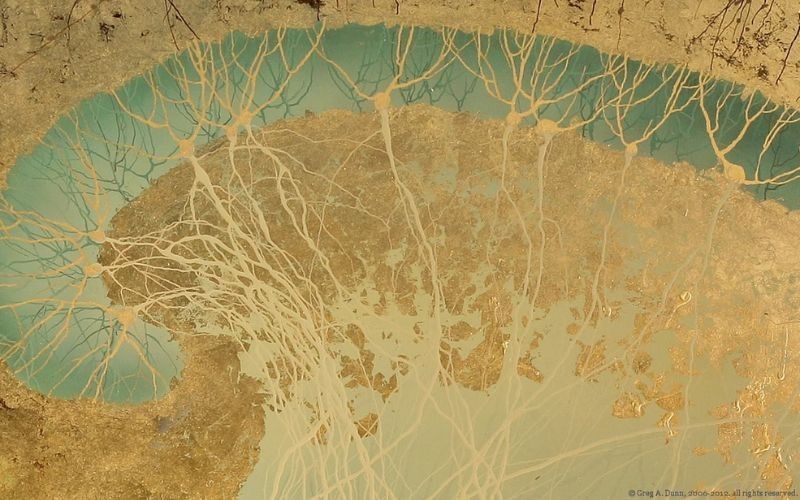(On Demand)

Image by George Tooker
This course is available on-demand. On-demand courses by design are self-paced and can be taken anytime. On-demand courses do not include interactions with an instructor.
Course Cost: $25 US
Register anytime.
The painting illustrated here is by American artist, George Tooker. Regarded as a painter of magical and social realism, Tooker appears to be offering an invitation to the illumination of a pathway in this work. Just as Tooker's works provide us with glimpses of social commentary on society, The Science of Compassion course is intended to present a broad overview of research into a relatively new branch of neuroscience.
If this course was designed twenty or even ten years ago the topics presented here would be limited. During the last several decades, the exploration into the science of compassion has been growing monumentally across continents, and measurement and evaluation, while still in early developmental stages, is being investigated vigorously by major international institutions. Themes that have made their way into the study of compassion can be seen as broad in nature: altruism, empathy, kindness, forgiveness, gratitude, happiness, resilience, and mindfulness, each integral to understanding compassion holistically.
Emma Seppälä, one of the editors to the Oxford Handbook of Compassion Science, tells us that “the eyes may be the window to the soul, but science is showing the ears may be the route to our hearts.” Just as Tooker showed portraits of social realism, compassion shows us ways to interact with the grave issues of our time, addressing human suffering and depravity, conquering economic poverty and the ills of social injustice, and demanding that we take responsibility for the health of our planet earth.
Compassion can and must be learned. Practicing self-compassion, loving-kindness, experiencing pathways to forms of mindfulness, supporting new ways of learning, respectfully interacting with others and all living creatures, and knowing how to understand interdependency and systems are all avenues to a more supportive and flourishing future.
What you will learn in this course:
Part One: What is the science of compassion?
- Overview of the science
- Difference between empathy and compassion
- The power of compassion
- Taxonomy of compassion
Part Two: What can the science of compassion teach us?
- Overview of the science of self-compassion
- The compassionate instinct
- Emotional intelligence, compassion and leadership
- Tips for mastering compassionate communication
Part Three: How does mindfulness relate to the science of compassion?
- The science behind the practice
- Why mindfulness, empathy and compassion matter
- How mindfulness forms the foundation for cultivating compassion
- Ten science-based reasons to start meditating
- Mind training
Part Four: How does social and emotional learning fit into the science of compassion?
- The brain basis for social emotional learning
- Social emotional learning and neuroplasticity
- Think Equal
- SEE Learning
- Compassion Integrity Training
Part Five: Where does kindness fit into the equation of science and compassion?
- The science of kindness
- The heart and science of kindness
- Overview of loving-kindness
- Loving-kindness practice
- Random acts of kindness ideas
Part Six: Do animals have compassion?
- The compassionate animal
- Ways animals show compassion
- Simple ways to show compassion to animals and the planet
Part Seven: Science of Compassion References
- Lexicon of the science of compassion
- Leading researchers and scientists in the field of the science of compassion
- Annotated Bibliography of the science of compassion

Course Developer
Marilyn Turkovich started with the Charter for Compassion (CFC) in 2013 as the education director and since that time has moved into a number of different roles with CFC, and is now the Executive Director. Marilyn's background has been primarily in higher education and most specifically in directing teacher training programs for the Associated Colleges of the Midwest, and chairing Columbia College-Chicago's master's program in multicultural and global education. She has done a considerable amount of curriculum writing through the years, much of it related to international and cultural topics. She worked with Independent Broadcasting Associates on a series for airing on National Public Radio, BBC and the Australian Broadcasting companies. There was a period of time in the 1990s when she worked in organizational development and specialized in instructional design work, strategic planning and leadership development. She also wrote and developed training on race and social justice initiatives.

